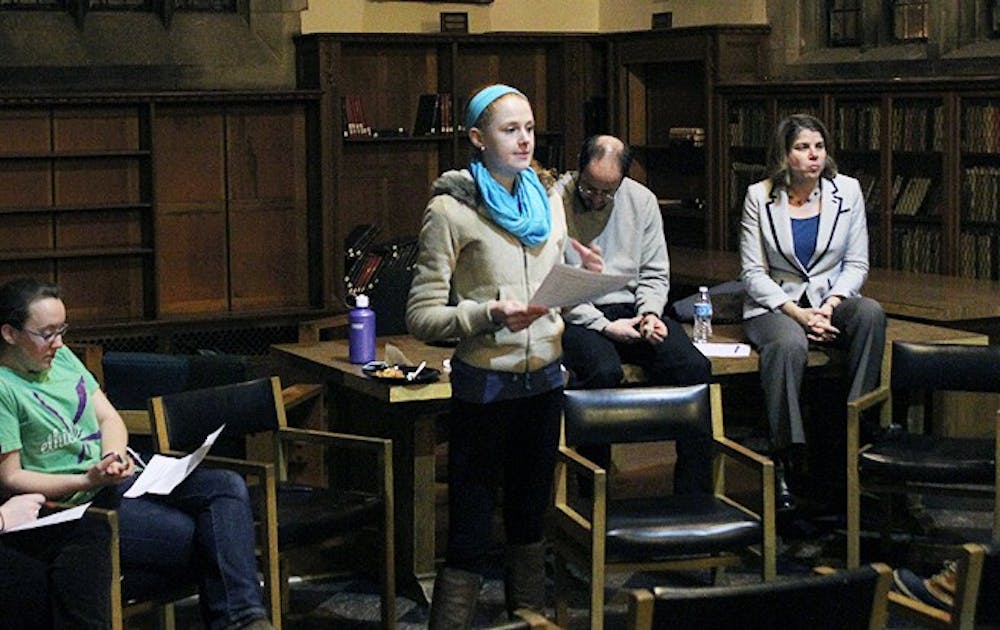Selective organizations can present positive and negative aspects of Duke social culture, depending on the role they play in students’ lives, administrators said.
At a panel discussion Thursday evening, some 50 students gathered in the Gothic Reading Room for a discussion about the selective nature of the greek community, selective living groups and other University organizations. Moderated by Donna Lisker, associate dean of undergraduate education, and Gary Glass, assistant director for outreach and developmental programming for Counseling and Psychological Services, the pair engaged with students—including members of student living groups and greek life in addition to those unaffiliated—in a conversation about the selective processes that impact students and the campus as a whole.
The intent of the discussion—named “The Science of Selection”— was to bring together abstract ideas and present them on a “peer-to-peer” level, said senior Emily McGinty, a member of Team Kenan, a student group that works to highlight ethical issues in everyday student life.
The pressure put upon new members to fit in can often replace an individual’s personal convictions with those of the group, Glass noted.
“People lose their own unique perspective of ‘I do it this way,’ ‘I like it that way,’ he said. “And group think takes over.”
January is a “tragic time” on East Campus because the community becomes divided when tenting season physically removes students from campus, and the conversations become focused on the drama surrounding fraternities and sororities, Lisker said.
Both speakers acknowledged the value of having smaller communities for students to belong to, but Glass lamented that many students “forget who they are” in the process of forming such groups.
The struggles of students who join selective organizations often go unaddressed, Lisker noted.
“[Students become] uncomfortable because they are being asked to behave in ways that are completely different from their personal values,” she said.
Glass noted that although selection is common among universities, there is a unique element of fear associated with the process at Duke. Fear of not finding a group leads students to join even if they don’t have a “strong identification” with that particular organization, he added.
The timing of the rush process at the beginning of the Spring semester has been a subject of scrutiny, Lisker added.
“[By having rush in January], first-year students can form a community before they make those decisions,” Lisker said.
She noted that there has been consideration of moving rush to sophomore year to prolong the “East Campus experience” and allow students more time before committing to an organization for three years.
When asked what the University would look like without the rush process, selective living groups and greek organizations, Glass simply replied that Duke would resemble the East Campus atmosphere—a random mix of students rather than separation by group.
Nonetheless, selective grouping has many positive aspects. Citing the recent protests to Kappa Sigma fraternity’s ‘International Relations’ party,’ Glass said he believes grouping has resulted in students becoming more vocal about their views.
Lisker added that groups provide students a sense of comfort and belonging that is integral to their development as a student and individual.
But as important as the groups seem to students during their time at the University, their significance tends to fade after graduation, Lisker noted.
“You just become about Duke,” she added.
Freshman Abhi Sanka, a member of Duke Student Government’s residential life committee, noted that the event was candid and informative, adding that he attended the event in hope of exploring ways to increase identity for independent houses on campus.
“The question is not ‘is it good to have selection or not,’ but how to use the intelligence that gained you entrance at a university like this to be wise about your selection,” Glass said.
Get The Chronicle straight to your inbox
Signup for our weekly newsletter. Cancel at any time.

